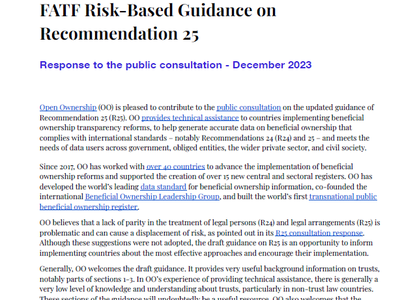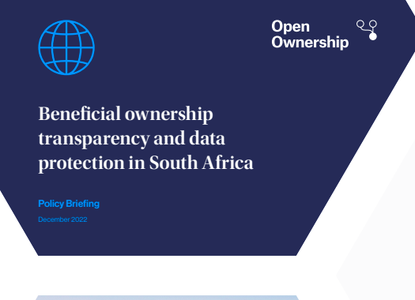Updated January 2023
Data should be collated in a central register
- Beneficial ownership disclosures should be collated and held within a central register.
- The central register should be an authoritative source of beneficial ownership information, with a designated responsible body.
A central register should be a digital repository that stores statutory declarations of beneficial ownership that are updated on a continuous basis. The register should serve as an authoritative source of information on the beneficial ownership of entities and arrangements, which users inside and outside of government can draw from and use as a point of reference. It provides a coordination function for the collection and distribution of information as well as a common infrastructure for business processes and managing data quality.
Having centralised beneficial ownership data means that people and authorities can access authoritative information on the beneficial ownership of corporate vehicles, from anywhere in a disclosure system, rapidly in a standardised format. This could be achieved by being able to access interoperable beneficial ownership data through a single portal. This is a prerequisite for the effective use of beneficial ownership data by all user groups, as it removes some of the practical and cost barriers to accessing and analysing beneficial ownership information.
Maintaining a central beneficial ownership register contributes to meeting the requirements of the Financial Action Task Force (FATF) Recommendations. Analysis of FATF country evaluations demonstrates that countries with a central register perform better against the FATF’s requirement to ensure timely access to adequate, accurate, and up-to-date information on the beneficial ownership of legal persons.








